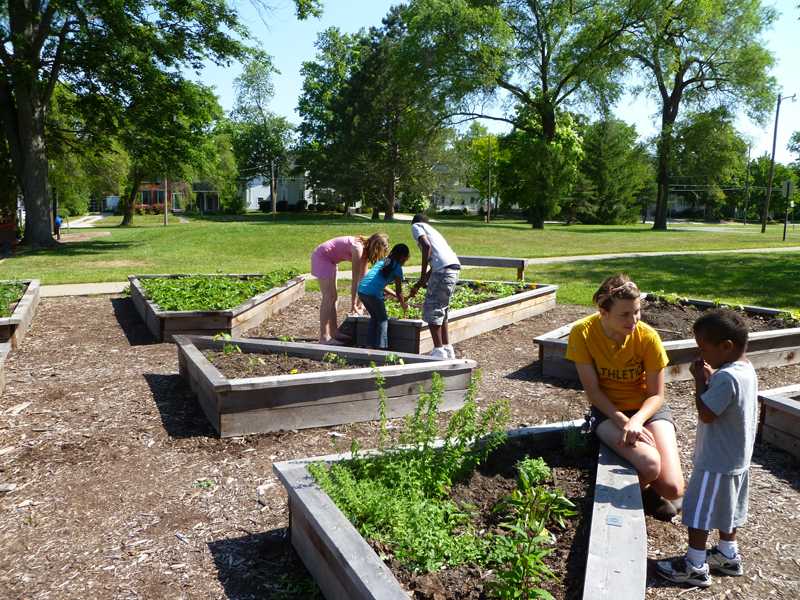OCS Utilizes Local Produce
Oberlin Community Service volunteers teach the greater Oberlin community about gardening and the growth of sustainable food. OCS will launch the new Plant a Row program this spring.
March 14, 2014
Beginning this year, Oberlin will take part in Plant a Row for the Hungry, a national program that helps provide freshly grown produce to families in need. Through this program, the College’s gardens will donate an extra row of fruits and vegetables to Oberlin Community Services, a responsive community organization that provides direct assistance to Lorain County residents who seek help meeting basic needs.
Started in 1995 by the Garden Writers Association, the Plant a Row program has donated more than 20 million pounds of produce and includes over 200 volunteer communities. According to its website, 14.9 percent of U.S. households were food insecure at some point in the last year, and over 50 million families — including 17 million children — experience the risk of hunger daily.
Oberlin’s gardens are tended both by students and community members and use much of their resources to aid families that might not have access to good food. According to the Oberlin College
website, about 28 percent of all city residents live in poverty — a statistic that the new plan aims to change.
“The campaign we’re running is connected to the national campaign that was first started by the Garden Writers Association,” said Volunteer Coordinator Alex Toutant, OC ’12. “The basic idea is to intentionally grow another row of produce to help other individuals. This is really thinking about your neighbor.”
Toutant also said that he doesn’t want the group to consist solely of college students.
“It’s a pretty large range of folks, and there’s a lot of people from many different backgrounds,” he said. “We don’t want this to be an individualistic effort. We want people to network and stay connected in the community.”
The collaboration with the campaign was spearheaded by Plant a Row Coordinator and College sophomore Hannah Rosenberg, who said she thinks the program will help unite the many different farmers and gardeners in the area.
“I came into the project thinking this had never been done before, but it has,” Rosenberg said. “This is the first time local organizations have been really united under one campaign, so it’s definitely going to help connect the local farmers and the small student gardens.”
According to Rosenberg, the majority of the work on the project has consisted of contacting local farmers.
“Essentially all the work done thus far has been outreach efforts to local farmers to get them all together to talk about the project. We really want to make this a bridge between local farmers and the College.“ Rosenberg said.
Rosenberg also said that the project aims to address a variety of other issues.
“There’s going to be some youth educational projects in here too,” Rosenberg said. “There’s the economic benefit, while connecting farmers and teaching and feeding children. This is a vibrant campus, but there’s many issues, and we want to help reduce the poverty.”
















